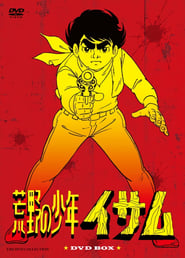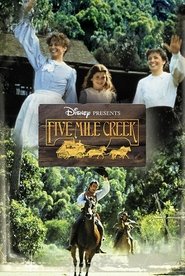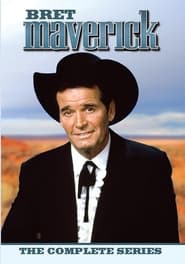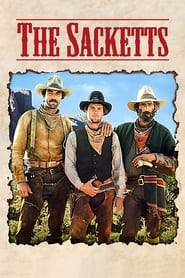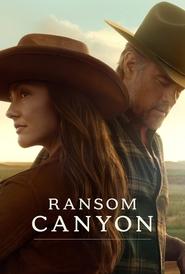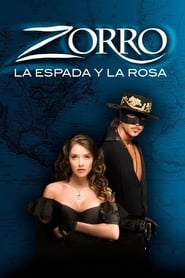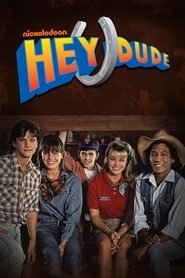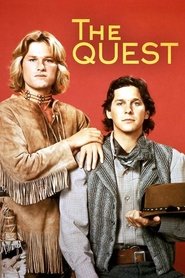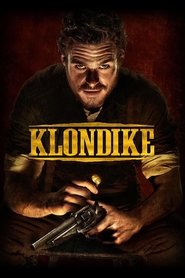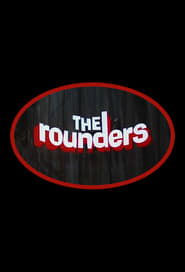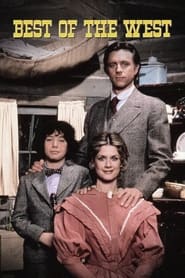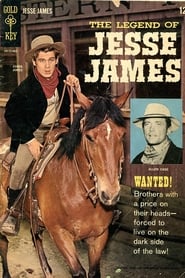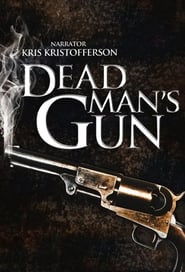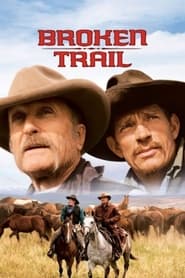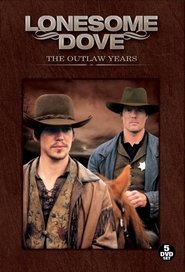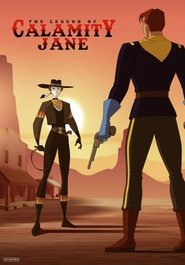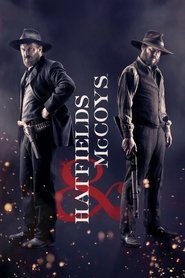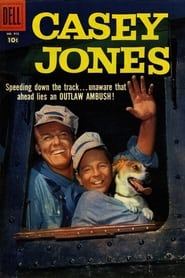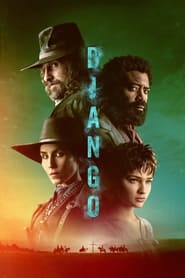Western TV Series - Page 8
-
Five Mile Creek
1983
Five Mile Creek
1983
star 7.2Five Mile Creek is a western television drama series produced in Australia; starred Liz Burch, Louise Caire Clark, Rod Mullinar, Jay Kerr, Michael Caton, Peter Carroll, Gus Mercurio, Martin Lewis, Priscilla Weems and a young Nicole Kidman. Jonathan Frakes was a guest star as Maggie's estranged husband, Adam Scott. The series aired on the Disney Channel in the US in the 1980s. -
Bret Maverick
1981
Bret Maverick
1981
star 5Bret Maverick is a 1981-82 American Western television series starring James Garner in the role that made him famous in the 1957 series Maverick: a professional poker player traveling alone year after year through the Old West from riverboat to saloon. In this sequel series, Maverick has settled down in Sweetwater, Arizona Territory, where he owns a ranch and is co-owner of the town's saloon. However, Maverick is still always on the lookout for his next big score, and continues to gamble and practice various con games whenever the chance arises. The series was developed by Gordon Dawson, and produced by Garner's company Cherokee Productions in association with Warner Bros. Television. -
The Sacketts
1979
The Sacketts
1979
star 7.5A traditional sagebrush saga based on two novels ("Sackett" and "The Daybreakers") by Louis L'Amour. It focuses on the three Sackett brothers in New Mexico after the Civil War, seeking their fortunes, avenging a family killing, driving cattle, and fighting for law and order. -
Ransom Canyon
2025
Ransom Canyon
2025
star 6.8Passions run deep in a small Texas town, as three ranching dynasties fight for their land, their legacies and the people they love. -
Zorro: La espada y la rosa
2007
star 7.3Spanish telenovela based on Johnston McCulley's characters. Don Diego Dela Vega, adopts the secret identity of Zorro. Diego born in the 1790s to a white father, Don Alejandro Dela Vega, and his wife, Native American warrior named Toypurnia. Diego learned his acrobatics and fencing skills in Spain, under a great swordmaster, than he returned to his family's California hacienda. He lives as both a nobleman and a vigilante, fighting imperialist oppression. He is backed by the brotherhood of Zorro, a secret society called the Knights of the Broken Thorn. Zorro falls in love with a beautiful young widow, Esmeralda Sánchez de Moncada. She arrives in California with her sister Mariángel Sánchez de Moncada and her father, Fernando, the newly appointed governor—and villainous dictator—of Los Angeles. The story arc focuses on mysteries concerning Esmeralda's long-lost mother and the man whose atrocities changed Diego's life forever. Their resolution threatens to shake the Spanish Empire. -
Hey Dude
1989
Hey Dude
1989
star 6.8Hey Dude is an American Western comedy series that aired from 1989 to 1991. The show was broadcast on the Nickelodeon network, and aired reruns on Nickelodeon until early 1999, and now on TeenNick ever since late 2011. Hey Dude was Nickelodeon's second original live action television series, following the 1984 series Out of Control. The series was set on the fictional "Bar None Dude Ranch" near the city of Tucson, Arizona. It portrayed the lives of the ranch's owner, his son, a female ranch hand, and four teenage summer employees. Hey Dude was a comedy geared towards a teenage audience. The complete series have been released on DVD. Only the first four seasons are on iTunes. -
The Quest
1976
The Quest
1976
star 6.4The Quest is an American Western series which aired on NBC from September to December 1976. The series stars Kurt Russell and Tim Matheson. The Quest's pilot episode aired as a television film on May 13, 1976. -
Klondike
2014
Klondike
2014
star 7.1The lives of two childhood best friends, Bill and Epstein, in the late 1890s as they flock to the gold rush capital in the untamed Yukon Territory. This man-versus-nature tale places our heroes in a land full of undiscovered wealth, but ravaged by harsh conditions, unpredictable weather and desperate, dangerous characters including greedy businessmen, seductive courtesans and native tribes witnessing the destruction of their people and land by opportunistic entrepreneurs. -
The Rounders
1966
The Rounders
1966
star 4The Rounders was a 17-episode western-style situation comedy about two cowboys on the fictitious J.L. Ranch in Texas. It starred Ron Hayes as Ben Jones and Patrick Wayne, a son of John Wayne, as Howdy Lewis. The M-G-M television series aired on ABC from September 6, 1966, to January 3, 1967. The program was loosely based on a 1965 film of the same name, The Rounders, starring Glenn Ford and Henry Fonda, set near Sedona, Arizona, rather than Texas. Chill Wills, a native Texan and formerly of CBS's Frontier Circus, appeared as the shady ranch owner, Jim Ed Love. Janis Hansen co-starred as Ben's girlfriend, Sally, and Bobbi Jordan played Howdy's girlfriend, Ada. Jason Wingreen appeared as Shorty Dawes, and Walker Edmiston as Regan. Character actors Strother Martin and J. Pat O'Malley appeared as "Cousin Fletch" and "Vince", respectively. James Brown, formerly the lieutenant on The Adventures of Rin Tin Tin, played "Luke". Selected episodes with notable guest stars include: "A Horse on Jim Ed Love", series premiere w -
Best of the West
1981
Best of the West
1981
star 6An unwitting city slicker is made the marshal of a lawless town in this absurdist Western that pokes gentle but clever fun at the genre's stock plots and characters. Best of the West is an American sitcom that aired on ABC from September 1981 through August 1982. -
The Legend of Jesse James
1965
star 4.8The Legend of Jesse James is an American western series starring Christopher Jones in the tile role of notorious outlaw Jesse James. The series aired on ABC from September 13, 1965, to May 9, 1966. Allen Case joined Jones as Jesse's brother, Frank James. -
Dead Man's Gun
1997
Dead Man's Gun
1997
star 4.3Dead Man's Gun was a western anthology series that ran on Showtime from 1997 to 1999. The series followed the travels of a gun as it passed to a new character in each episode. The gun would change the life of whomever possessed it. Each episode was narrated by Kris Kristofferson. The executive producer was Henry Winkler. -
Broken Trail
2006
Broken Trail
2006
star 6.9The story is about an aging cowboy and his nephew who transport 500 horses from Oregon to Wyoming to sell them to the British Army. Along the way, their simple horse drive is complicated when they rescue five Chinese girls from a slave trader, saving them from a life of prostitution and indentured servitude. Compelled to do the right thing, they take the girls with them as they continue their perilous trek across the frontier, followed by a vicious gang of killers sent by the whorehouse madam who originally paid for the girls. Broken Trail weaves together two historical events: the British buying horses in the American West in the late 19th century and Chinese women being transported from the West Coast to the interior to serve as prostitutes. -
Lonesome Dove: The Outlaw Years
1995
star 5.7"Lonesome Dove: The Outlaw Years" begins two years after the end of "Lonesome Dove". After two years spent bounty hunting, womanizing, and drinking away the painful memories of his late wife, Hannah, Newt Call returns to town to find many things have changed. His brother-in-law, Austin, is now an alcoholic sheriff, who has never fully recovered from his beloved sister's death, and blames Call for it. His father-in-law, Josiah, is the town mayor, but hasn't been right in the head since Hannah died. The town is run under the iron fist of Clayton Mosby, who also cannot forget Hannah, who looked amazingly like his late wife, Mary. "The Lonesome Dove", the hotel opened in the mini-series by Ida Grayson, now belongs to Amanda Carpenter, a woman with a mysterious past and a determination on par with Clay Mosby's. Curtis Wells also gets a new gunsmith, a mysterious and feisty woman named Mattie Shaw. -
The Legend of Calamity Jane
1997
star 6.4Slow drawls, quick draws, heroes and outlaws all have one thing in common -- "The Legend of Calamity Jane." Fast with the whip, and even faster with a smile, Jane rides the trails and backwoods in search of truth and justice, showing what real heroes are made of in this animated western adventure series. -
Hatfields & McCoys
2012
Hatfields & McCoys
2012
star 7.4It’s the true American story of a legendary family feud—one that spanned decades and nearly launched a war between Kentucky and West Virginia. The Hatfield-McCoy saga begins with Devil Anse Hatfield and Randall McCoy.. Close friends and comrades until near the end of the Civil War, they return to their neighboring homes—Hatfield in West Virginia, McCoy just across the Tug River border in Kentucky—to increasing tensions, misunderstandings and resentments that soon explode into all-out warfare between their families. As hostilities grow, friends, neighbors and outside forces join the fight, bringing the two states to the brink of another civil war. -
Hero
1966
Hero
1966
star 5The Hero is an American television sitcom that aired on NBC on Thursday Night at 9:30pm from September 8, 1966 to January 5, 1967. -
Casey Jones
1957
Casey Jones
1957
star 5.5Television version of the classic train story of Casey Jones, the engineer of the steam-engine powered "Cannonball Express". -
Django
2023
Django
2023
star 5.4In the Wild West in the 1860s and 1870s, Sarah and John have founded New Babylon, a city of outcasts of all backgrounds. Haunted by the murder of his family eight years earlier, Django is still looking for his daughter, believing she may have survived the killing. When Django shockingly finds her in Babylon, about to marry John, Sarah - now a grown woman - wants Django to leave fearing he'll put Babylon in jeopardy. But Django, believing the city is in danger, is adamant that he will not lose his daughter twice.
